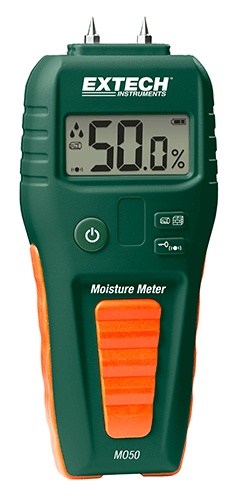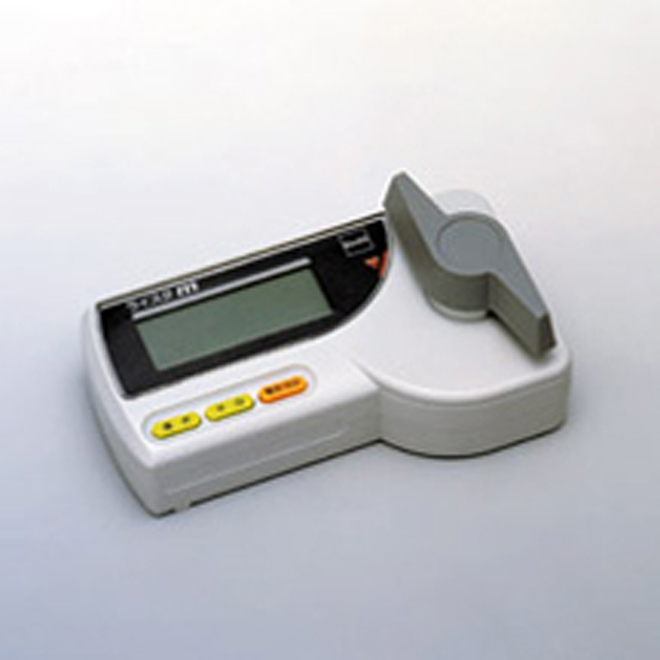The Ultimate Overview to Moisture Meters: A Comprehensive Summary and Just How They Can Save You Money
In the realm of structure maintenance, building and construction, and numerous markets, the relevance of properly measuring moisture degrees can not be overemphasized. Moisture meters offer as important devices in identifying and monitoring moisture web content in products, assisting in protecting against expensive damages and making certain the high quality of products. Understanding the subtleties of various kinds of dampness meters, their applications, and the potential cost-saving advantages they provide can be a game-changer for organizations and experts alike. Finding exactly how these gadgets can not only streamline processes however also add to monetary cost savings is a journey worth starting.
Types of Moisture Meters
Numerous types of dampness meters are available for different applications in various industries. One typical kind is the pin-type dampness meter, which determines the electrical resistance between two pins placed right into a product. This kind appropriates for wood, drywall, and other structure products. Pinless moisture meters, on the other hand, use electro-magnetic sensing unit plates to scan a bigger area without triggering damage to the material's surface area. These meters are excellent for rapidly assessing wetness levels in huge locations such as wall surfaces and floors.
In addition, there are additionally specialty moisture meters designed for particular materials like grain, hay, or dirt. These meters offer exact moisture readings tailored to the one-of-a-kind properties of the material being checked. Infrared wetness meters gauge the thermal residential or commercial properties of a material to establish its dampness material non-invasively, making them valuable for applications where pin or pinless meters may not appropriate. Comprehending the various kinds of moisture meters offered can aid industries select one of the most ideal device for their specific moisture measurement needs.

Advantages of Making Use Of Moisture Meters

Furthermore, using moisture meters can bring about enhanced energy efficiency. By determining areas with high wetness levels, such as leakages or bad insulation, adjustments can be made to improve energy conservation and lower utility prices. In agricultural setups, wetness meters play an important duty in enhancing crop returns by enabling farmers to keep track of soil dampness levels and make educated irrigation choices. Overall, the advantages of utilizing dampness meters span across different sectors, providing cost-efficient solutions and promoting better quality control practices.
Just How to Select the Right Moisture Meter
Choosing the suitable dampness meter entails considering crucial factors such as material compatibility, measurement array, and calibration precision. When selecting a moisture meter, it's important to make certain that the meter appropriates for the particular product you will certainly be screening. Different products have varying electric residential or commercial properties that can impact moisture analyses, so picking a meter made for your product is critical for precise results. Furthermore, consider the dimension series of the dampness meter. Guarantee that the meter can identify moisture degrees within the variety required for your applications. Calibration accuracy is an additional crucial factor to keep in mind (Moisture Meter). Select a moisture meter with trusted calibration to make sure precise and constant analyses. Some meters may need periodic calibration modifications, so recognizing the calibration procedure is essential. By thoroughly evaluating these factors, you can pick a moisture meter that meets your needs and provides accurate moisture dimensions for your projects.
Proper Techniques for Moisture Meter Usage
To make certain exact moisture readings and make best use of the efficiency of a wetness meter, employing appropriate techniques is important. When using a pin-type dampness meter, insert the pins or probes into the product being evaluated up until they make full get in touch with. Make certain the pins are perpendicular to the surface area to get one of the most precise reading. For pinless dampness meters, hold the device level versus the product and relocate slowly to cover the entire area for an ordinary reading. It's essential to calibrate the moisture meter according to the product being examined to improve precision. Take several readings throughout the surface and average them out for an extra trustworthy useful source outcome. Furthermore, guarantee that the product being tested is accommodated to the setting to avoid manipulated analyses. Normal upkeep of the moisture meter, such as cleansing the pins or sensing unit, is likewise crucial to make sure accurate and constant analyses. By following these appropriate strategies, individuals can depend on their dampness meter to supply trustworthy moisture levels, assisting in avoiding pricey damages or making certain quality in different applications.

Cost Financial Savings With Moisture Meter Applications
How can the critical application of dampness meters lead to significant expense savings across different sectors? In the farming industry, moisture meters aid in identifying the optimum time for collecting plants, protecting against excess or over-drying dampness that can affect the final product's high quality.

In addition, in the food handling sector, dampness meters are essential for keeping an eye on product top quality and making certain conformity with security laws. By accurately gauging dampness web content in food, producers can protect against wasting, preserve quality, and minimize waste, leading to considerable price financial savings. In general, the tactical application of wetness meters is a valuable investment that can cause substantial cost decreases and boosted effectiveness across different industries.
Final Thought
In final thought, wetness meters are useful devices for gauging and discovering wetness degrees in numerous materials. By using the best dampness meter and adhering to appropriate techniques, customers can effectively protect against costly damages brought on by excess moisture. Purchasing a top Continue quality dampness meter can cause significant cost financial savings in the lengthy run by recognizing potential problems at an go to these guys early stage and allowing timely remediation. Ultimately, moisture meters are necessary instruments for maintaining the stability and long life of structures and materials.
Moisture meters offer as essential devices in detecting and keeping an eye on moisture content in products, helping in preventing costly problems and making sure the quality of products. Infrared moisture meters determine the thermal buildings of a material to determine its moisture web content non-invasively, making them beneficial for applications where pin or pinless meters might not be appropriate.Dampness meters use invaluable advantages in properly keeping an eye on and examining moisture levels in diverse products and atmospheres. In agricultural settings, dampness meters play an important function in enhancing plant yields by enabling farmers to keep track of dirt wetness degrees and make notified irrigation decisions.In conclusion, dampness meters are beneficial tools for discovering and measuring wetness degrees in numerous products.